Search
Summary 
Loading AI-generated summary based on World History Encyclopedia articles ...
Search Results

Article
Royal Women in the Mughal Empire
It was not only the Mughal emperors that left an indelible mark in the history of the Indian subcontinent but also the queens and princesses. The latter's contributions to art, architecture, literature, cuisine, refinement, and administrative...
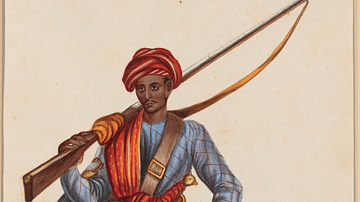
Image
Mughal Empire Sepoy
A mid-19th century sepoy musketeer of the Mughal Empire (1526-1857).
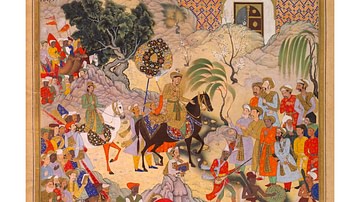
Image Gallery
A Gallery of Mughal Paintings
In this gallery, we present many fine examples of paintings from the Mughal Empire (1526-1857). Espoused and cultivated by the Mughal court, the artform married the bold styles of classical Indian miniature painting, dating as far back as...

Video
The Rise and Fall of the Mughal Empire - Stephanie Honchell Smith
Trace the rise and fall of the Mughal Empire, which became one of the wealthiest and most powerful states in the early modern world. Though he was descended from some of the world’s most successful conquerors, Babur struggled to gain a...
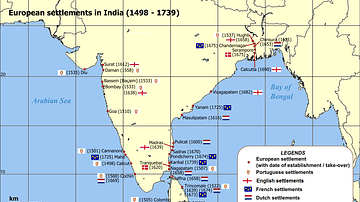
Article
The English and Dutch East India Companies' Invasions of India
In the early 17th century, the Dutch and English East India Companies turned their eyes towards India, as part of their grand schemes to develop extensive trade networks across the Indian and China Seas. They were faced with two significant...
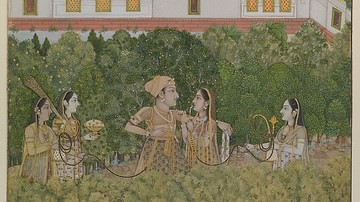
Image
Mughal Prince & Ladies in a Garden
A later Mughal painting, as practiced at provincial centers such as Lucknow during the 18th century, where "a less imperial and more leisurely, graceful style" was adopted. This painting depicts a Mughal prince and princess, accompanied by...
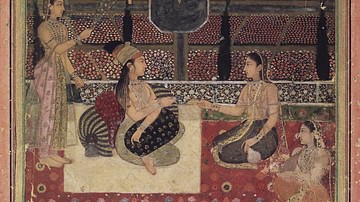
Definition
Urdubegis
The urdubegis were a group of female warriors in the Mughal Empire, who protected the zenana, the harem of the emperor. Although the origins of female bodyguards go back to the beginning of Indian civilizations, the urdubegis were a Mughal...
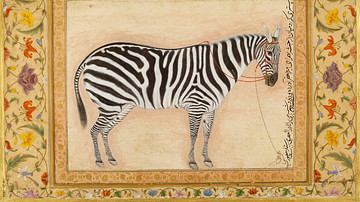
Image
Mughal Zebra Painting
A zebra presented to the fourth Mughal Emperor Jahangir (1569-1627). Opaque watercolour and gold on paper, by Mansur, 1621, Mughal. Museum no. IM.23-1925. © Victoria and Albert Museum, London
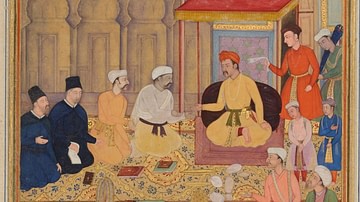
Definition
Ibadat Khana
The House of Worship or the Ibadat Khana was established by Mughal Emperor Akbar (1542-1605 CE) for conducting religious debates and discussions among theologians and professors of different religions. Abu'l-Fath Jalal-ud-din Muhammad Akbar...
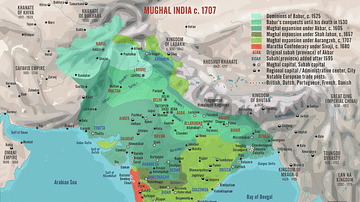
Image
Mughal India c. 1707
A map illustrating the emergence and expansion of one of the largest centralized states in the premodern world - the Mughal (Persian for Mongol) Empire from its foundation in 1526 by Ẓahīr al-Dīn Muḥammad Babur, a Chagatai Turk and a descendant...